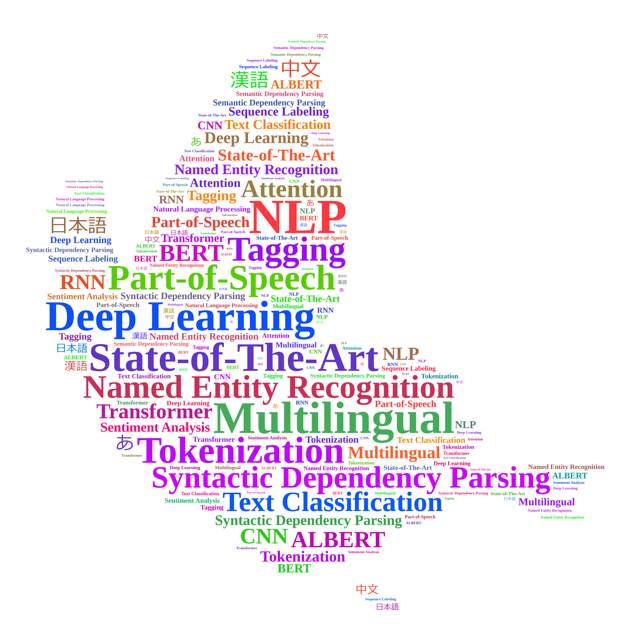93 Total Integrations
AIMLAPI
Call AIMLAPI's OpenAI-compatible chat models from Haystack pipelines and agents.

Amazon Bedrock
Use Models from AI21 Labs, Anthropic, Cohere, Meta, and Amazon via Amazon Bedrock with Haystack

Amazon Sagemaker
Use Models from Huggingface, Anthropic, AI21 Labs, Cohere, Meta, and Amazon via Amazon Sagemaker with Haystack

Anthropic
Use Anthropic Models with Haystack

Apify
Extract data from the web and automate web tasks using Apify-Haystack integration.

Arize Phoenix
Trace your Haystack pipelines with Arize Phoenix

Arize AI
Trace and Monitor your Haystack pipelines with Arize AI

AssemblyAI
Use AssemblyAI transcription, summarization and speaker diarization models with Haystack

AstraDB
A Document Store for storing and retrieval from AstraDB.

Azure AI Search
Use Azure AI Search with Haystack

Azure CosmosDB
Use Azure CosmosDB with Haystack

Azure Document Intelligence
Use Azure Document Intelligence with Haystack

Azure
Use OpenAI models deployed through Azure services with Haystack

Bright Data
Extract data from 45+ websites, get search engine results, and access geo-restricted content using Bright Data's web scraping services.

Browserbase
Use Browserbase headless browsers with Haystack

Burr
Build an agent from Haystack components

Cerebras
Use LLMs served by Cerebras API

Chroma
A Document Store for storing and retrieval from Chroma

Cohere
Use Cohere models with Haystack

Comet API
Use the Comet API for text generation models.
Context AI
A component to log conversations for analytics by Context.ai
Couchbase
Use the Couchbase database with Haystack

DeepEval
Use the DeepEval evaluation framework to calculate model-based metrics
DeepL
Use DeepL translation services with Haystack

Docling
Use Docling to locally parse and chunk PDF, DOCX, and other document types in Haystack

DuckDuckGo
Uses DuckDuckGo API for web searches

Elasticsearch
Use an Elasticsearch database with Haystack

Elevenlabs
ElevenLabs Text-to-Speech components for Haystack.

Exa
Search the web with Exa's AI-powered search, get content, answers, and conduct deep research
FastEmbed
Use the FastEmbed embedding models

fastRAG
fastRAG is a research framework for efficient and optimized retrieval augmented generative pipelines

Featherless AI
Get access to thousands of open source language models hosted by Featherless.ai

Flow Judge
Evaluate Haystack pipelines using Flow Judge

GitHub
Interact with GitHub repositories, issues, and pull requests within Haystack

Google AI
Use Google AI Models with Haystack

Google Gen AI
Use Google's Gemini models with Haystack via the new Google Gen AI SDK

Google Vertex AI
Use Google Vertex AI Models with Haystack

Groq
Use open Language Models served by Groq

HanLP
Use HanLP for Chinese text processing with Haystack

Hugging Face
Use Models on Hugging Face with Haystack
INSTRUCTOR Embedders
A component for computing embeddings using INSTRUCTOR embedding models.

Isaacus
Use the latest foundational legal AI models from Isaacus in Haystack.

Jina AI
Use the latest Jina AI embedding models

LanceDB Haystack
A DocumentStore backed by LanceDB

langfuse
Monitor and trace your Haystack requests.

Llama.cpp
Use Llama.cpp models with Haystack.
Llama Stack
Use the Llama Stack generation models.

llamafile
Run LLMs locally with llamafile

LM Format Enforcer
Use the LM Format Enforcer to enforce JSON Schema / Regex output of your Local Models.

Mastodon Fetcher
A custom component to fetch a mastodon usernames latest posts

Model Context Protocol - MCP
Haystack Tool Integration with the MCP
Llama API
Use Llama Models with Haystack

Milvus
Use the Milvus vector database with Haystack
Mistral
Use the Mistral API for embedding and text generation models.

mixedbread ai
Use mixedbread's models as well as top open-source models in seconds

MongoDB
Use a MongoDB Atlas database with Haystack

MonsterAPI
Use open Language Models served by MonsterAPI

Needle
Use Needle document store and retriever in Haystack.

Neo4j
Use the Neo4j database with Haystack

Notion Extractor
A component to extract pages from Notion to Haystack Documents. Useful for indexing Pipelines.

NVIDIA
Use NVIDIA models with Haystack.

Ollama
Use Ollama models with Haystack. Ollama allows you to get up and running with large language models, locally.

OPEA
Use the OPEA framework for hardware abstraction and orchestration

OpenAI
Use OpenAI Models with Haystack

OpenLIT
Monitor, evaluate & improve GenAI and LLM applications

OpenRouter
Use the OpenRouter API for text generation models.

OpenSearch
A Document Store for storing and retrieval from OpenSearch

OpenStreetMap
Haystack component to fetch geographic data via the freely available OpenStreetMap (OSM) Overpass API.

Opik
Trace and evaluate your Haystack pipelines with Opik

Optimum
High-performance inference using Hugging Face Optimum

PaddleOCR
Use PaddleOCR’s text-recognition and document-parsing capabilities with Haystack
pgvector
A Document Store for storing and retrieval from pgvector

Pinecone
Use a Pinecone database with Haystack

PraisonAI
Integrate PraisonAI multi-agent workflows into your Haystack pipelines

Qdrant
Use the Qdrant vector database with Haystack

Ragas
Use the Ragas evaluation framework to calculate model-based metrics

Ray
Run and scale Haystack Pipelines with Ray in distributed manner

Sambanova
Use open language models served by Sambanova

Serpex
Multi-engine web search for Haystack — access Google, Bing, DuckDuckGo, Brave, Yahoo, and Yandex via Serpex API

SingleStore
Use SingleStore with Haystack

Snowflake
A Snowflake integration that allows table retrieval from a Snowflake database.
STACKIT
Use the STACKIT API for text generation models.

Titan Takeoff Inference Server
Use Titan Takeoff to run local open-source LLMs with Haystack. Titan Takeoff allows you to run the latest models from Meta, Mistral and Alphabet directly in your laptop.

TogetherAI
Use the Together API for text generation models.

Traceloop
Evaluate and monitor the quality of your LLM apps and agents

Trafilatura
Efficiently gather text and metadata on the Web for LLM and RAG
Unstructured File Converter
Component to easily convert files and directories into Documents using the Unstructured API
Valkey
Use a Valkey database with Haystack

vLLM
Use the vLLM inference engine with Haystack

Voyage AI
Use text embeddings and rerankers from Voyage AI

IBM Watsonx
Use IBM’s watsonx models with Haystack via Watsonx SDK.

Weaviate
Use a Weaviate database with Haystack

Weights & Biases Weave Tracer
Send Haystack traces to Weights & Biases for monitoring and visualization

